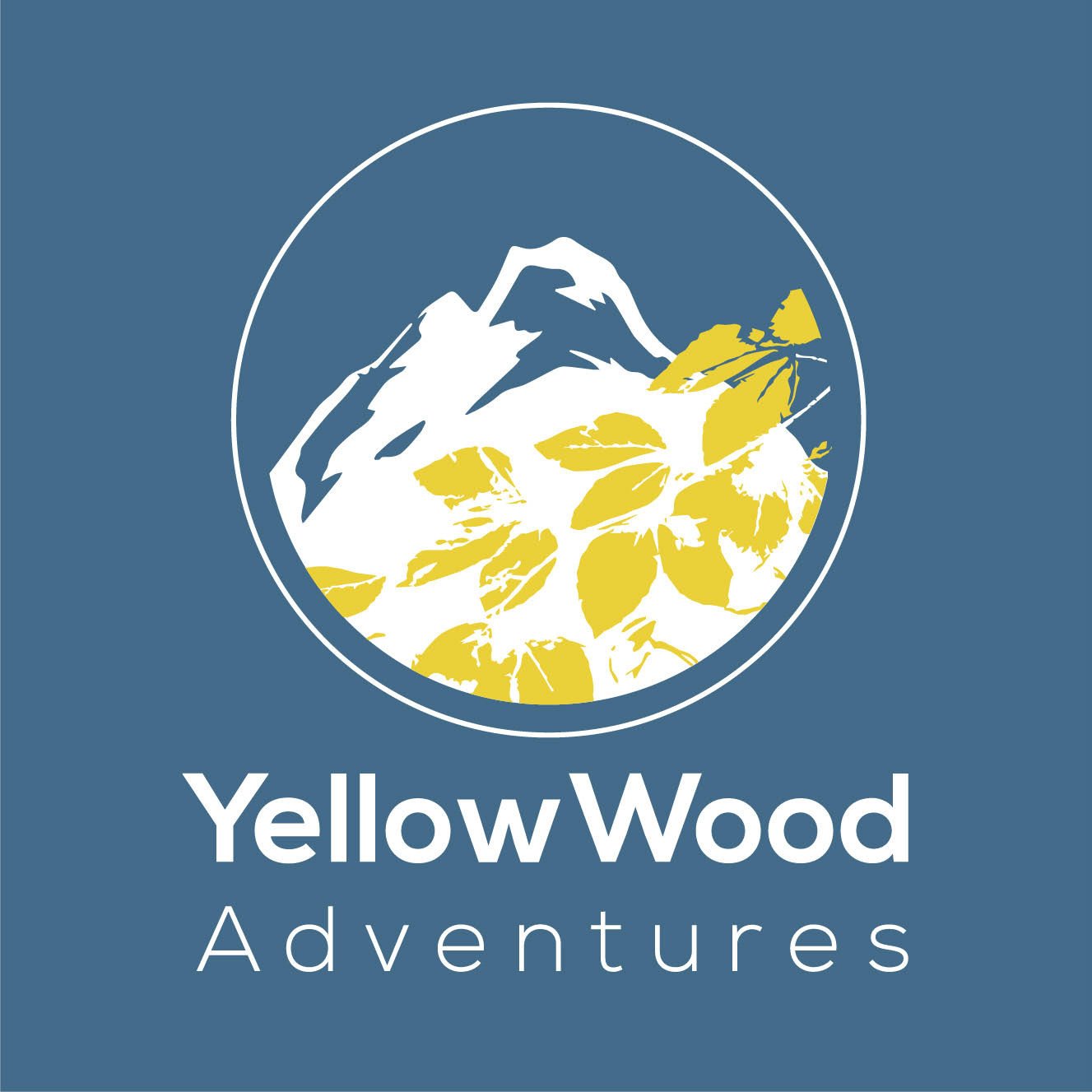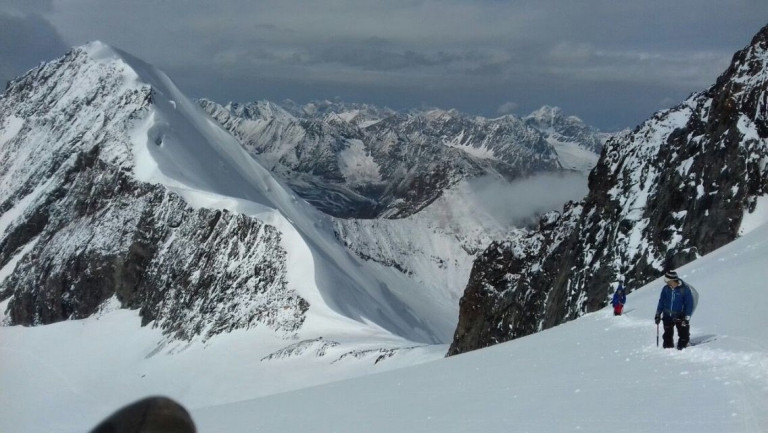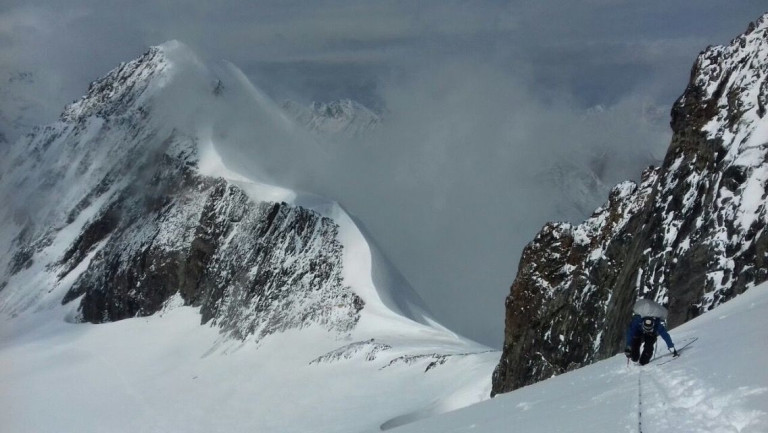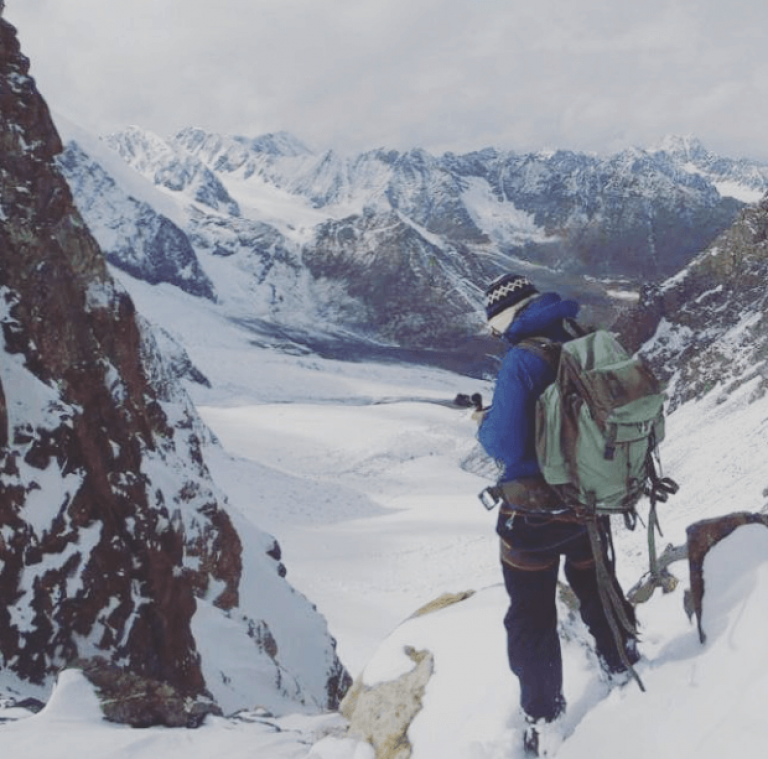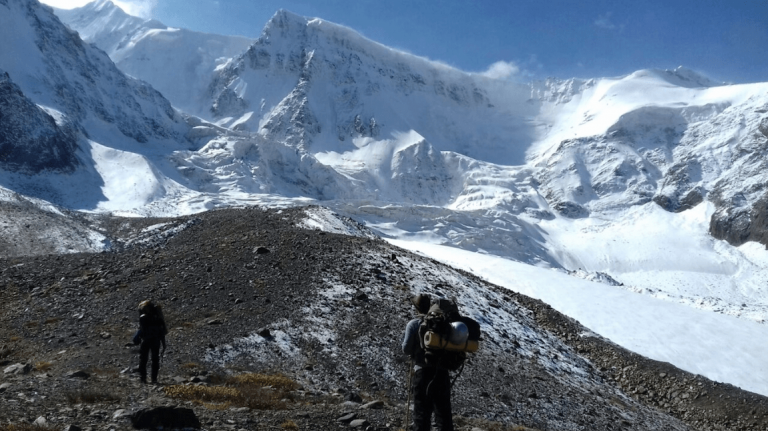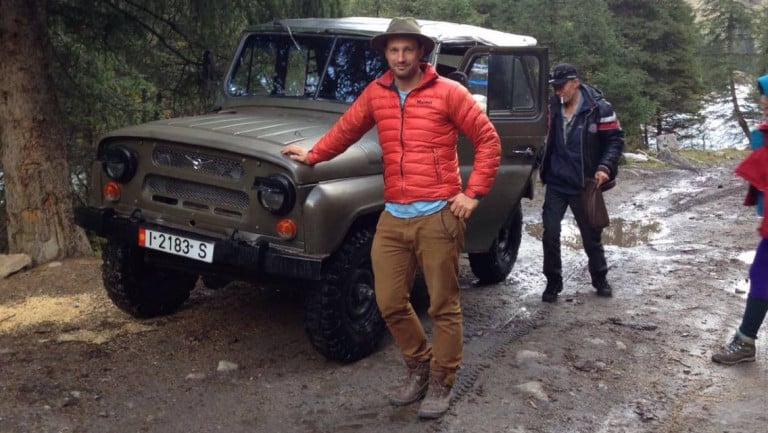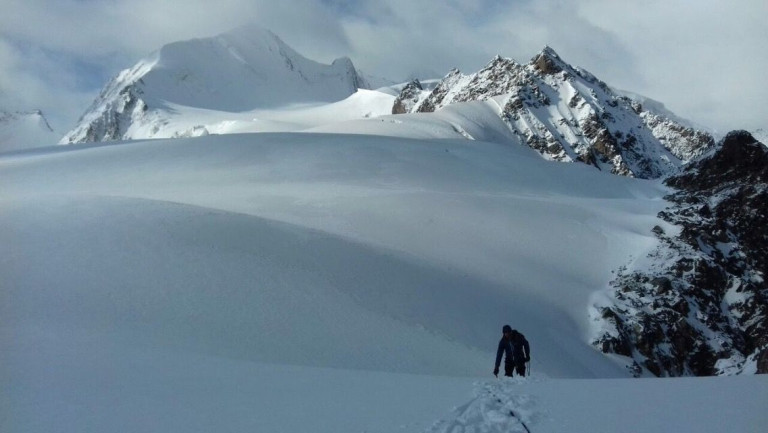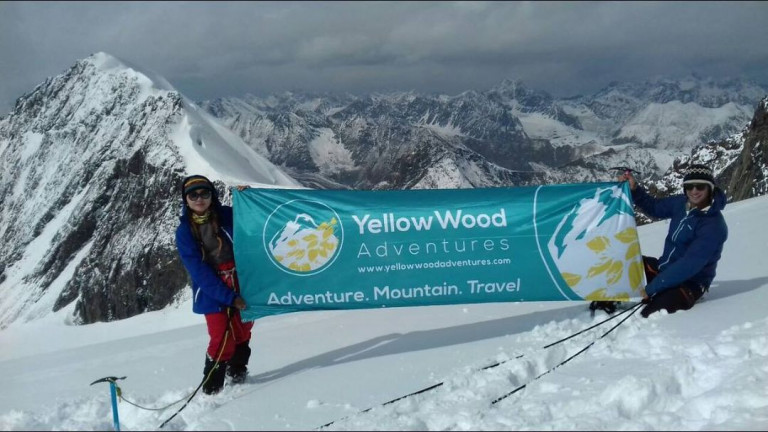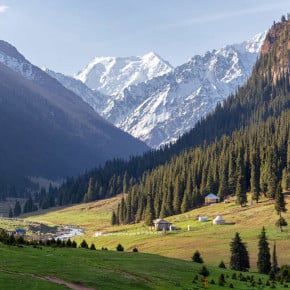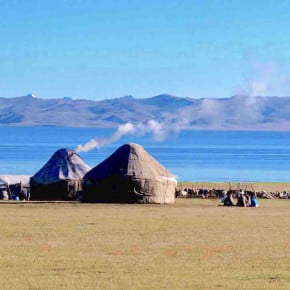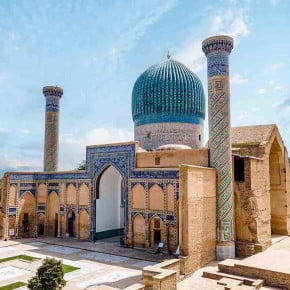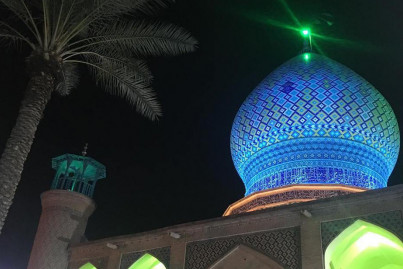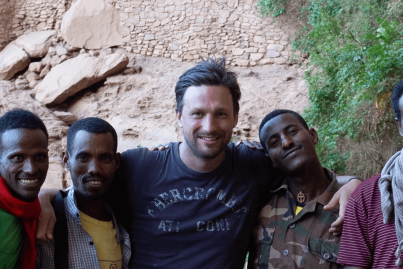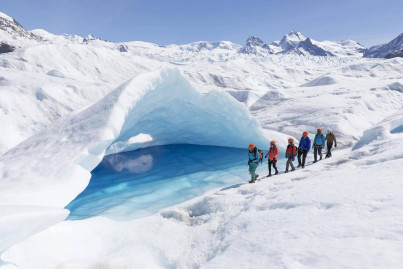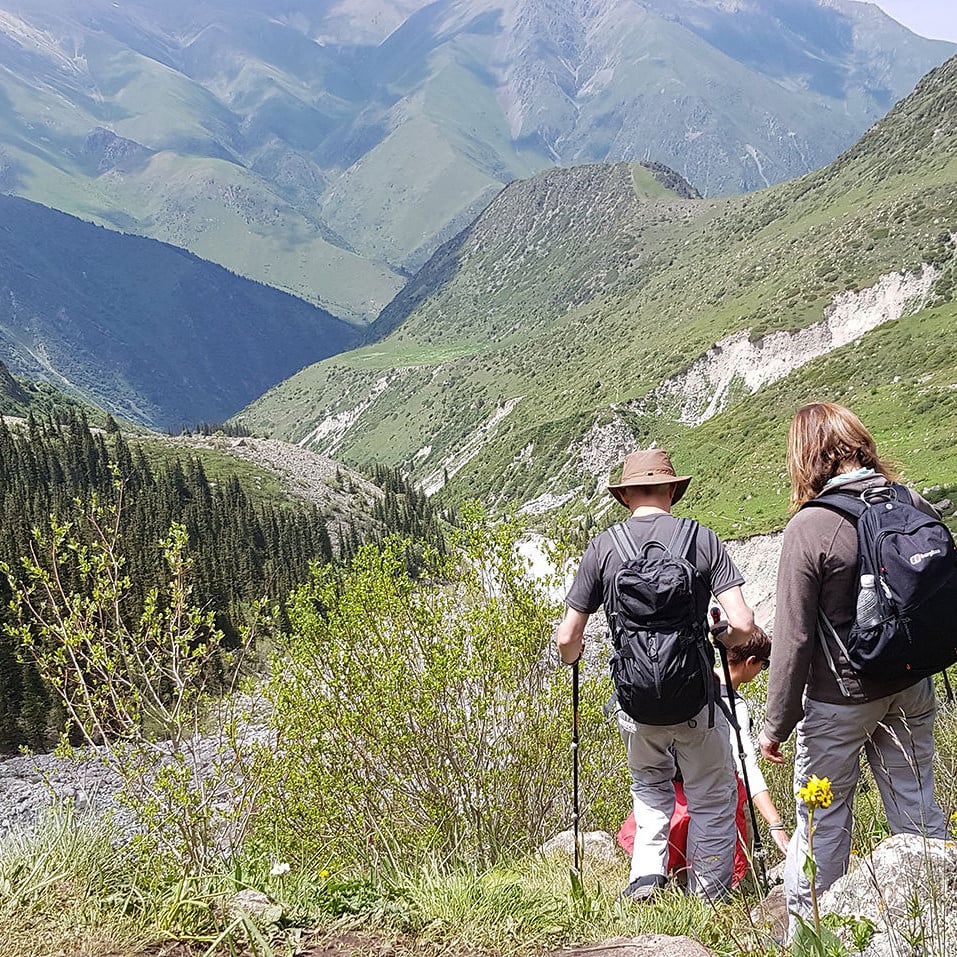I was alone again. Really alone. I was in a valley camping next to a river and the air was rapidly cooling. I had filled up two aluminium water bottles from the torrent next to me, but the aggressive glacial waters made the liquid cloudy and gloopy. I realized this, emptied them, then walked over to a smaller stream cascading down from higher peaks, where the water was clear. The valley had long tapering pine trees that reached up to a sky filling up with twinkling stars. I had pitched my slim tent in the lee of a large boulder, away down from the track used by people and horses. As the light was fading, I looked up the steep grassy bank where I saw five young goats bouncing around.
I was boiling the water to cook macaroni. I’d also packed tomato sauce and a thick, fatty sausage that I cut into chunks with an army knife. I had walked for twelve hours that day on a radial hike to visit a glacier and my body was humming. While the water boiled, I focused on breathing in the chilly air and watching the stars slowly come out. The last wisps of cloud went purple. Time stopped and my mind stopped. There are just some moments you never forget. I had begun to run hiking trips in Ethiopia, but wanted to expand into a new destination, so I had flown to Kyrgyzstan to scope out the routes in the Tian Shan Mountains. These beautiful snowy summits run along the eastern border of this small Central Asian country, separating it from China.
I had been hiking along one of the more popular trails of the Tian Shan for about a week when I first met Maks on a wooden footbridge that forded a small river in a valley. He was leading a group of hikers but stopped to chat with me anyway, I think he was curious as to what I was doing there. A professional Kyrgyz mountain guide, he had a calm manner and smiling oval eyes which instantly won me over. He was due to climb Peak Palatka (4740m) in a few days’ time with some Russian tourists, and I talked myself onto the advanced climb as a paying customer. I had done a huge amount of trekking in Ethiopia and other countries, but wanted to increase my skill level by taking on a more challenging climb. ‘Palatka’ means ‘tent’ in Russian. The twin peaks are so named because of their beautiful symmetrical shape resembling the old Soviet tents previously used by climbers in the region.
Climbing Peak Palatka (4740m)
The Russian tourists ended up flaking out in the end, but we went ahead anyway, along with a local female Kyrgyz climber called Gulbara. Hiking and climbing are not popular with most of the men in Kyrgyzstan, and far less so with the women, making Gulbara a welcome anomaly. She is very beautiful, has a penchant for dressing up in traditional Kyrgyz dresses and taking photographs, and is extremely serious when it comes to mountains. I rented crampons, heavy winter climbing boots and an ice axe in Karakol, and we set out on the six-day round trip. A heavy snow was already falling. I remember pitching my one-man tent at our basecamp on the sloping side of a mountain. Two days later when I removed it, I realised that my body heat had seeped through my minus-20 down feather Nepalese sleeping bag, melting all the snow away. I had been so tired I hadn’t even noticed I’d been sleeping on football-sized rocks.
Our little camp of two tents (Maks and Gulbara were sharing) was close to an impossibly steep cleft of ice that fell between two towers of stone like a frozen waterfall, at about a 70-degree angle. We had to hack out toe-holds with our crampons and use our ice axes to maintain a steady hold on the ice as we fought our way up. I was absolutely thrilled with the experience – this was real climbing. From the top of this we roped ourselves together as there were some hidden crevasses. The thickly fallen snow made this part of the mountain feel like some sort of ethereal wonderland, and I experienced a drug-like rush of endorphins.
We made our way in a looping curve up to a steep ridge. Maks was leading the way, I was behind him and Gulbara was behind me. All of a sudden we were in a heavy snowstorm and couldn’t see more than two metres ahead of us. I could tell the altitude and conditions were affecting Gulbara, but she insisted she was fine and held it together, and we made steady progress. The snowstorm passed as we reached an area where the ridge levelled out a bit. At this height we could see impossibly vast rows upon rows of jagged shark-teeth mountains filing back to the horizons all around us, in great snowy barbs. But menacing dark clouds were rolling in fast from the north, looking worse than what we had already been through.
A view to the summit
Maks pointed to the way ahead of us. We were only about 150m from the summit but it was up and over a knife-edge of a ridge that was covered in great sticky blobs of minutes-old fresh snow. Maks hesitated. I am no expert and tend to err on the side of recklessness, but I certainly felt that trying to go over that ridge in a snowstorm would be very dangerous indeed. Maks made the call and we headed back down. Gulbara was furious. The bad weather never hit us on the way down which exasperated Gulbara further and added to my own disappointment. But when we had made it safely down the ridiculously steep ice chute, the storm finally hit us. Even though we were only making our way across relatively flat ground retracing our footsteps, we became disorientated and could barely find our way back to our tents less than 100 metres away.
We eventually made it, although it took three times as long, and I was grateful we weren’t still up on the exposed mountain. I always respected Maks for that decision, and we became busi- ness partners after that. I also stored tents I had flown in from the UK in his house in Karakol, and we began taking tourists hiking and horse riding through several routes in the Tian Shan. After a week back in the capital of Bishkek, juggling multiple work projects and my demanding Chinese accountant in London from my hotel room, I switched on the out-of-office on my email and got on a local bus to the countryside in the south. I wanted to scope out an itinerary that took in the great lakes and more of the nomadic Kyrgyz way of life.
After two hours or so, I woke up. We had stopped at one of the fast-food restaurant stops along the main highway, east of the city. I sleepily joined the queue with a tray to get some of the heavy meat filled dumplings called manti, and a bowl of spicy udong noodle soup. A young pretty girl with almond eyes stood in front of me. She said ‘fast food’ in English, which seemed a strong enough basis for us to sit down together at a table over lunch. Her name was Burulcha. She was going to turn eighteen in two days and was about to start studying Economics at Bishkek University. Her English was extremely limited, but we stuck to some very basic phrases as both my Russian and Kyrgyz are simply non-existent.
It was then that she came out with it: “What’s your motto?”
I admitted that I didn’t have one and, knowing that obviously she did, I asked her what hers was.
“If not me, who?” she replied.
It was indeed a great motto. I felt happy for her that she was so excited to begin studying, and embark upon a future full of possibilities. She was just the nicest girl I ever met.
I like taking local buses. It never fails to amaze me how much communication can be transferred without any knowl- edge of a corresponding language. In this way I passed the time chatting to three local women, taking the usual internationally applicable shit for being thirty-three and unmarried without children. From one nowhere town to another, I finally got to the last nowhere town closest to my destination. The skinniest of the three ladies (whom I liked the least) had kept telling me how far it was to where I was going and that I should stay with her that night, but I knew she was only doing it because she wanted money. She finally understood that I wasn’t going to go for it and stopped trying.
In the south of the country
When I got off the bus, I stood in the street surrounded by men and waited for something to happen. One young man, more enterprising than his elders, stopped his car and in the street next to me, got out and showed me a price on his phone after hearing that I wished to go to Tash Rabat. We agreed a price and I got in. His girlfriend was in the back seat and came along for the ride. The journey was immense. After a long, flat plain filled with grass, the Tian Shan mountain range rose up in a steep, spiky-topped wall to my left as we headed south. After bombing down the road for about an hour, we turned left and drove into the mountains along a dirt track. The road threaded through weird and wonderful rock formations with long, green pastures leading up to the high places at a 45-degree angle.
We arrived at Tash Rabat, a stone-built Caravanserai on one of the ancient routes of the Silk Road, a two-day’s walk from the Chinese border. Caravanserai were the inns of the ancient trade routes across Asia, where merchants could rest their caravans of animals, slaves and family members. A welcome relief from the elements and bandits, they afforded an opportunity to break bread, sing, and trade information and gossip in a multitude of tongues. I paid my driver, said goodbye to his girlfriend, and walked inside the damp interior of the domed complex, made from large rocks and cement. I knew from previous research that this building had been reconstructed by the Soviets, with even this relatively modern version beginning to be swallowed up by the ever-moving verdant mountainside.
‘Yet as I looked in at the dark stable-rooms, used for housing horses and camels, water dripped in from the circular opening in the ceiling to release smoke from the cooking fires, I was sure I could ascertain the faint note of a lute, plucked somewhere from within the folds of history. I took my rucksack and walked up a steep foothill to get a view of the area. White yurt camps dotted the valley like fresh mushrooms. The valley was very green, and the river has fresh, drinkable water. It felt good to be back out of the city, and I enjoyed the wind and the sunshine. I was lucky to get a yurt to myself and slept soundly as the Milky Way sprawled overhead.
They had run out of horses in the valley the next day, as some large tour groups had come through and taken them up to the high pass with guides. I lightened my pack, leaving some things in the yurt as I would return that evening, and set off in the direction of China. I was glad to be walking in the sunshine. After a few hours the going got steep and the grass disappeared, replaced by grey slag and stone. I headed up to the high pass, breathing very heavily towards the top as the air thinned. On the other side the pass fell away down to the impressive Chatyr-Kul alpine lake at 3500 metres above sea level [‘Celestial Lake’ in Kyrgyz], 23 by 10km with glacial inflows, with the mountains of the Chinese border in the distance.
Into the heart of the mountains
After eating a lunch of flatbread, dried fruit and nuts surreptitiously lifted from the breakfast table, I walked back to the yurt camp. In the morning the son of the camp’s owners dropped me in the nearest town. His name was Rasul [‘Prophet’ in Arabic] and he was a teacher in a local school although currently off for the summer. He spoke good English and said he liked history and, when asked, said that his favourite part of Kyrgyz history was the Kyrgyz Empire. This period of self-rule and expansion preceded the Uyghur Empire (the Uyghur peoples of Western China share a much closer heritage with the Kyrgyz both genetically and in their practice of Islam than their Han Chinese rulers) and the domination by the Mongol hordes in the 13th Century.
He also explained that Tash Rabat had previously been a mercury mine (he actually said ‘liquid iron’ but I figured it out) until the Soviets had filled in the tunnels in the 1980s when they rebuilt the structure. I caught a bus to the nowhere town of Naryn. Opportunistic cab drivers who hang around bus stations tend to be arseholes all over the world, and my driver was no exception. After driving around aimlessly in town until a friend could come along for the ride, during which he constantly tried to re-negotiate the price until I ended up screaming at him and waving my fists in his face, we finally set off for Song Kol Lake. After he had picked up five litres of water from his house and played with his son. And bought some bread.
The drive was long and beautiful, going right into the heart of the mountains of central Kyrgyzstan. I started to appreciate it as the filthy mood he had put me into subsided. By the time we reached the lake I was spellbound with the beauty of the place. I didn’t like the first yurt camp we stopped at. It just didn’t feel right. When the old man saw that I was going to leave he told me that the next camp didn’t have any water. That told me all I needed to know about him. “Yes, I’m sure we will all die of thirst tomorrow next to the largest freshwater lake in Kyrgyzstan,” I actually spoke out loud to myself as we drove to the next camp. This one had good vibes with a young family and innumerable children running around.
Horsing around
I was given my own yurt and noticed that the small circle at the top of the roof had a modern touch with transparent plastic instead of the usual felt covering. This was swarming with about fifteen or so horseflies, which have a very painful bite. I wisely decided to worry about this later and went back out to ask for a horse. My horse arrived from another camp and after adjusting the length of the stirrups I rode out by myself onto the wide plain. The lake is enormous (270km2) and the plains surrounding it are also very large. It is big sky country and I spent a lot of time just watching the clouds drifting across it. Three young boys spread across two horses were shepherding a flock of about a hundred goats. I cantered up to them calling out the familiar ‘As-salamu alaykum’ [‘Peace be upon you’ in Arabic] which always puts people at ease.
The young boy who had a horse to himself came up along- side me and we spurred our horses into a gallop. He was riding without a saddle and of course completely licked me. Even without a saddle he sat effortlessly glued to his mount. His raggedy shirt was open revealing his brown tummy as tight as a drum. ‘The horse is the true home of the nomad’, I thought to myself. The previous week in Bishkek I was having a beer with a local history teacher called Jalil. He had grown up in the city and didn’t get on a horse until he was twenty years old. He described the experience to me in these exact words: “It was like a machine I already knew how to operate. I knew which levers to pull – I instinctively knew how to control the horse and it felt like I should always have been there.”
I explored the area around the camp for a couple of hours and returned home before sunset. There were two Kyrgyz families from two of the towns a few hours’ drive away at the camp, and they invited me into the larger dining yurt for schnapps and kemeys, a slightly fermented milk drink. We did the usual round of international sign language and they gave me shit for not being married and being without children. I was right not to worry about the horseflies as when the temperature dropped with the sunset, they stopped buzzing and moving and didn’t bother me at all in the night. Going to sleep looking at the wooden latticework of the yurt, I was very happy.
The next day I took a slightly larger horse out for four hours and explored to the west of the camp along the lake shore. Galloping free along the open plain was the stuff dreams are made of. It was very hot, so I tied a t-shirt around my head and wore sunglasses making me look like a kind of rubbish Lawrence of Arabia. It was quite boggy in places and I had to double-back a few times to find higher ground as I was very conscious of my horse damaging his legs in the uneven, watery ground. I rode up to the neighbouring yurt camp and they were also shepherding livestock and they waved to me.
A window back in time
When I dropped off the horse, the day was still young, so I walked four hours up and down the nearest peak, which still had patches of ice stuck to it. It drizzled just as I was reaching the top but then the cloud broke and sunlight dashed through creating a perfect rainbow. The lake stretched out before me and from this height I could see the wind play upon its surface. On the way down I heard some strange animal calls that I couldn’t place. When I got down to one of the larger ice patches I saw a solo sandy camel standing next to it, which had been the cause of all the bellowing.
I had been lost in my own thoughts, but this snapped me out of my reverie back into my surroundings. Seeing a camel next to an ice field was a jarring impression (like imagining Hannibal bringing elephants over the Alps to attack Rome for example). I imagined it was very likely this camel’s ancestors had navigated the perils of the Silk Roads, bringing profit to the generations of traders who for centuries have journeyed through the steppes of Central Asia. I was tired when I got back to camp but the family made me a shower with solar- powered hot water, which was an unforeseen luxury.
In the morning I hitchhiked around the lake to the northern shore but it was full of tourists watching some awful crap while a Kyrgyz girl dressed like Maid Marion shouted at them through a loudspeaker. I negotiated with a driver to take me to the nearest town, and after driving around for twenty minutes looking for other passengers, we drove off down the winding mountain roads. Then followed an exhausting day of travel via numerous buses, cars and taxis towards a yurt camp I wanted to see on the shore of Lake Issyk Kul. The largest lake in the country at 6200km2, it is also the second largest alpine lake in the world after Lake Titicaca in Peru. When I finally got to the lake shore, I enjoyed its Mediterranean-like waters but didn’t like the camp. It just didn’t feel right, and despite my tiredness I decided not to stay.
A party
I walked up to the dirt track and stuck my thumb out. The first car stopped. It had two large Kyrgyz women in the front seats, who turned out to be sisters. The one not driving was very animated and explained to me in Russian (I under- stood through her sign language) that she had been working at a health conference in Karakol selling products although she lived in Bishkek. For lack of anything more relatable to say I explained how much I liked kemeys, to which they completely lost their minds with enthusiasm and immediately invited me to join their family party. Tired or not tired you just don’t say no to that. We arrived at their house, which was full of people. The two sisters were from a family of thirteen siblings – eight brothers and five sisters (how many times did they tell me this) – and they were all there.
In the main living room (this was a house not a yurt) tables had been placed together in a large ‘L’ shape, covered with white tablecloths. I was promptly seated at ‘the head’ of this and fed more slightly alcoholic milk than you would think it possible for one person to consume. One of the muscular sons of the siblings, who somehow explained he was an acrobat in a circus, refused to believe I couldn’t speak Russian and constantly spoke to me loudly in Russian to the point where everyone just ignored him. Still, communication was possible. Among other things I explained that my grandmother was soon going to have her ninetieth birthday (I used the Kyrgyz numbers in the back of my phrasebook) and that she was German. This information was met with serious deliberation and respect by all.
One of the young girls was quite an actress and performed a poetic display in Kyrgyz, of which of course I didn’t understand a word, but which was very entertaining. After about two hours I was so exhausted I explained I had to leave and after they dropped me in the centre of town I somehow found a taxi to take me to a guesthouse a few kilometres out as all the ones in town were full. This was a large building with spacious rooms and wide wooden stairs painted red. There were Kyrgyz fami- lies everywhere, but I had no capacity for interest in anyone else by this point.
I was given a large room on the ground floor with a thin mattress on a large rug. A bone bow made from the horns of a mountain Walia Ibex hung on the wall with a decorative arrow. There was an oil painting of an elderly Kyrgyz couple on another wall, the wrinkled man wearing the traditional hat of white felt called a Kalpak. As I lay there the wind blew in the thin white lace curtain out from the window and the breeze covered my legs. I thought that a lot can happen in a couple of weeks, and I thought about Burulcha’s motto.
This extract is taken from 'Wax & Gold: Journeys in Ethiopia & other roads less travelled' by Sam McManus:
